5 AAPI-Owned Fermented Food Brands on a Mission To Balance Your Gut Microbiome While Staying True to Their Cultural Roots
Nowadays, finding a variety of these fermented food products on supermarket shelves sitting shoulder to shoulder with bottles of ketchup or ranch dressing is commonplace. But this wasn’t always the case. By way of the Asian and Oceanian diaspora, we can now thank our Asian American and Pacific Islander (AAPI) communities for their influence on the history of food (and gut health) in the United States.
- Miranda Brown, PhD, Miranda Brown is Arthur F. Thurnau Professor and Professor of Chinese Studies at University of Michigan.
As we celebrate AAPI Heritage Month in May, we'd like to hone in on some of our favorite AAPI-owned fermented food brands that are making it their mission to both balance your gut microbiome and stay true to their cultural roots. Here, these successful business owners share their background, influences, and vision of the role their products play in the market today. And to get a better understanding of the history and cultural relevance of these fermented foods, we spoke with a professor of Asian studies to learn more.
The cultural relevance of fermented foods in Asia, according to a food historian
“Today, we think of fermented foods as a health and flavor thing," says Miranda Brown, PhD, a professor of Chinese studies at the University of Michigan. "But eating fermented foods was originally a way of dealing with seasonal surpluses and shortages. If you think about the growing seasons historically, there isn’t as much going on in the wintertime, but you still have to eat. So people would pickle their vegetables—or salt or dry them, along with their meat—as a way of keeping the food supply going."
{{post.sponsorText}}
So though fermented foods in present times are often prized for their gut health and flavor benefits, they started as means of preservation to ensure food supply was available during the cold winter months, when neither harvesting fresh produce nor having access to refrigeration were viable options. “As recently as 1980, in places like Taiwan—which was one of the first places to industrialize—90 percent of the population did not have refrigeration. Luckily, it’s a pretty warm place, so many could keep growing and harvesting plants all year. But this was not the case in the colder climates of Northern Korea and many parts of China. If you didn't have pickled or salted vegetables, you didn't have vegetables in the winter,” Dr. Brown says.
According to Dr. Brown, this is the primary reason why Asians—and likely people all over the world—have been indulging in some form of fermented foods for centuries. “Foods, new recipes, and ingredients cross borders. What’s interesting is that certain foods get selected more than others depending on the culture, palate, and health concerns,” she notes. “And right now, we seeing a lot of focus on the gut microbiome. So obviously, people are seeking answers by changing their diets and are therefore eating more fermented foods,” Dr. Brown notes in regards to the uptick in demand for these types of products in recent years.
5 AAPI-owned fermented food brands that support a diverse microbiome
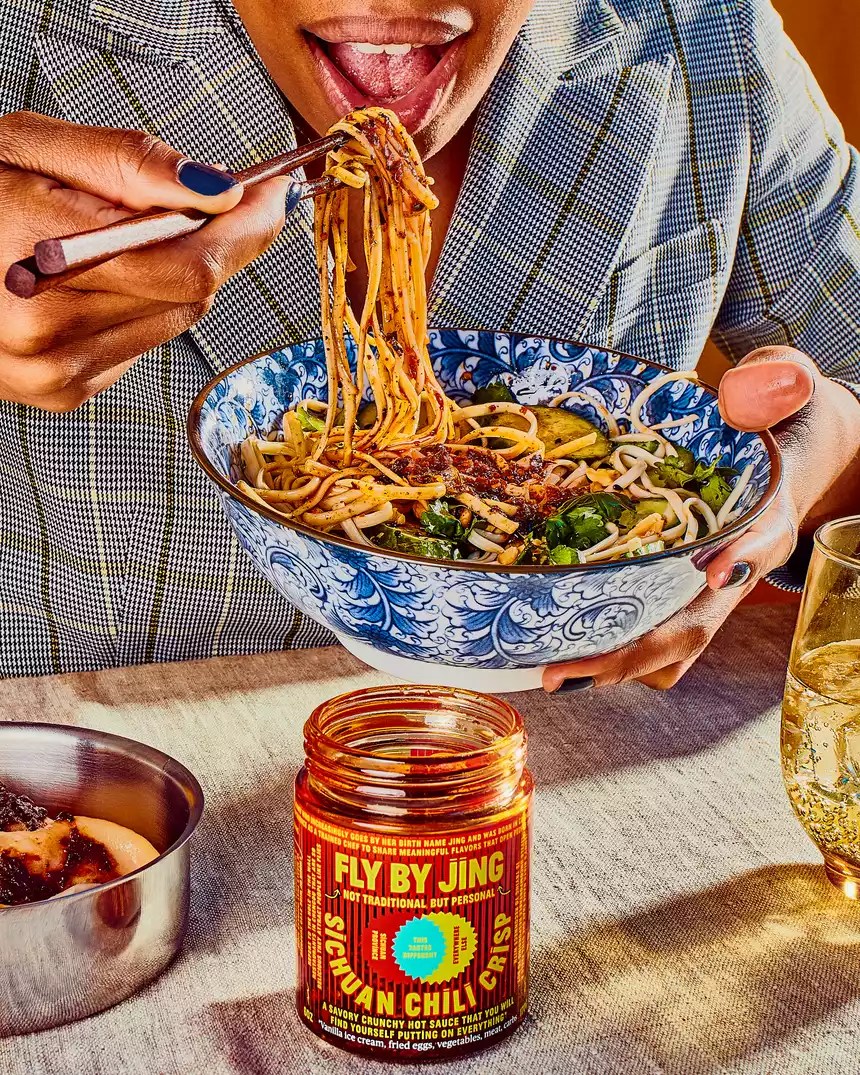
Savory, hot, and deliciously tingly are a few words used to describe this spicy Sichuan Chili Crisp made by Jing Gao, owner of Fly by Jing. “Fly by Jing is inspired by the flavors of my Chinese hometown of Chengdu,” Gao says. “Chengdu’s famous hole-in-the-wall eateries are said to be so delicious that they attract people like flies. This product is basically the culmination of me reclaiming my identity and reconnecting to my roots.”
Written right on the jar’s label, this “not traditional, but personal” crunchy condiment is perfect for adding explosive flavor to just about anything from fried eggs, vegetables, and grains to vanilla ice cream. It’s also made with minimal ingredients, one of which is fermented black beans, which adds gut-health benefits to this delicious topping. “We use simple, high-quality ingredients and careful techniques to create deep flavor without any added preservatives or flavor enhancers. Plus, our fermented black beans pack a big—and 100 percent natural—umami punch,” Gao says.
Aside from creating an ethically-sourced and high-quality product, Gao has made it her mission to support other AAPI-founded brands in the CPG food space. “Community has been key for us. We’re always working with other AAPI founders because we are all connected, and one company’s wins are everyone’s wins,” she says. “We are helping create space for all marginalized cultures and cuisines to belong and thrive.”
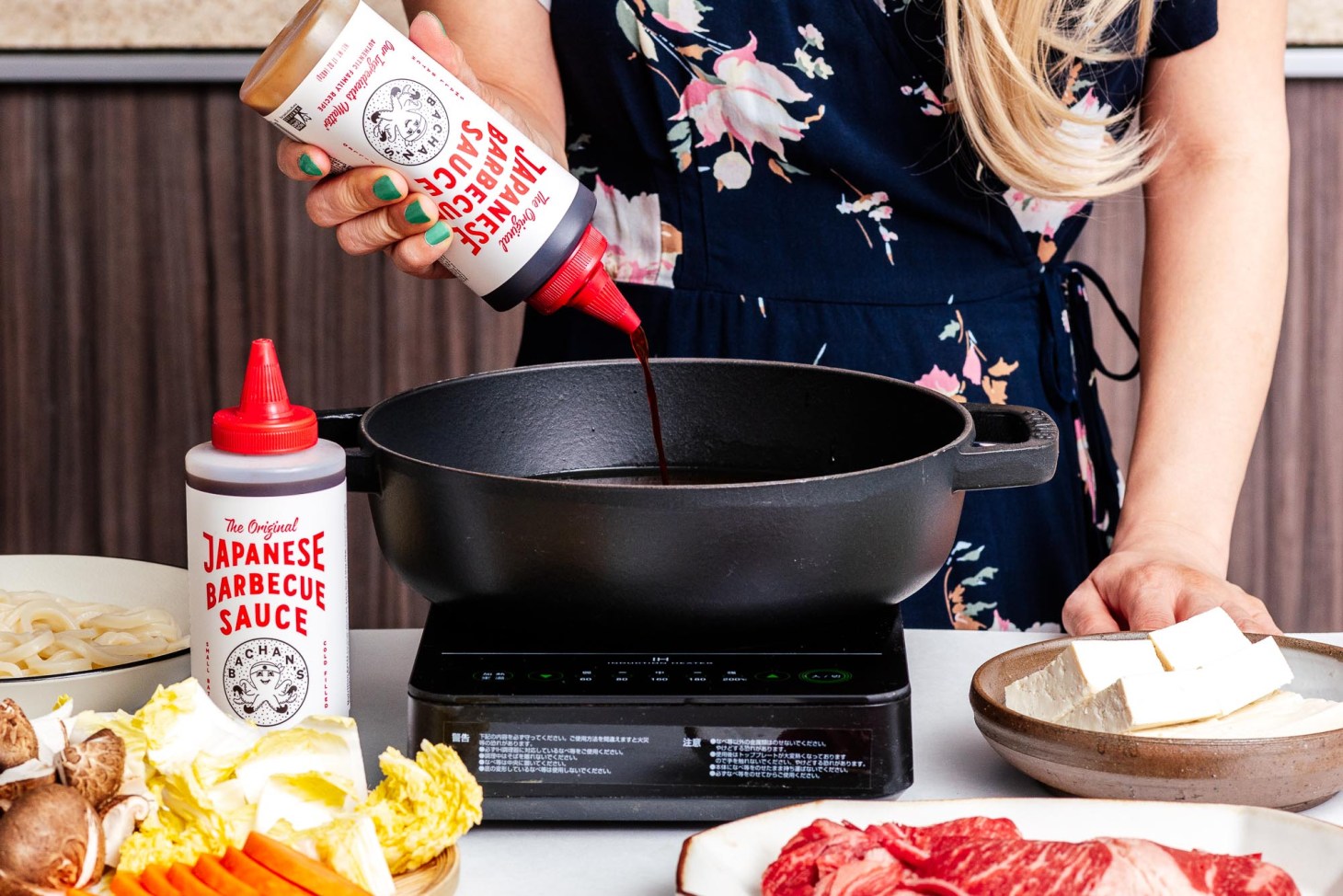
Bachan’s Japanese Barbecue Sauce is made with just ten simple ingredients, including fermented ones like soy sauce, mirin, and rice vinegar. The product, which was created by Bachan’s founder and CEO Justin Gill, is tangy, sweet, and perfect for marinating, dipping, or topping literally everything. According to Gill, the special sauce recipe was inspired by his own great grandparents that immigrated to the United States from Japan. “I learned to make it from my Bachan [which means granny in Japanese], and she is the namesake of the sauce. We used to make it together every year as a family and give it out to clients of our family landscape business,” he says.
Staying true to his roots, Gill designed the packaging by drawing inspiration from his family heritage and legacy. He sources his mirin directly from Japan and brews the soy sauce using traditional techniques to stay as authentic to the original recipe as possible. “Bachan’s mission is to ‘Bring Family Together,’ and this is one part of my Japanese-American background that I hope everyone can enjoy,” he says.
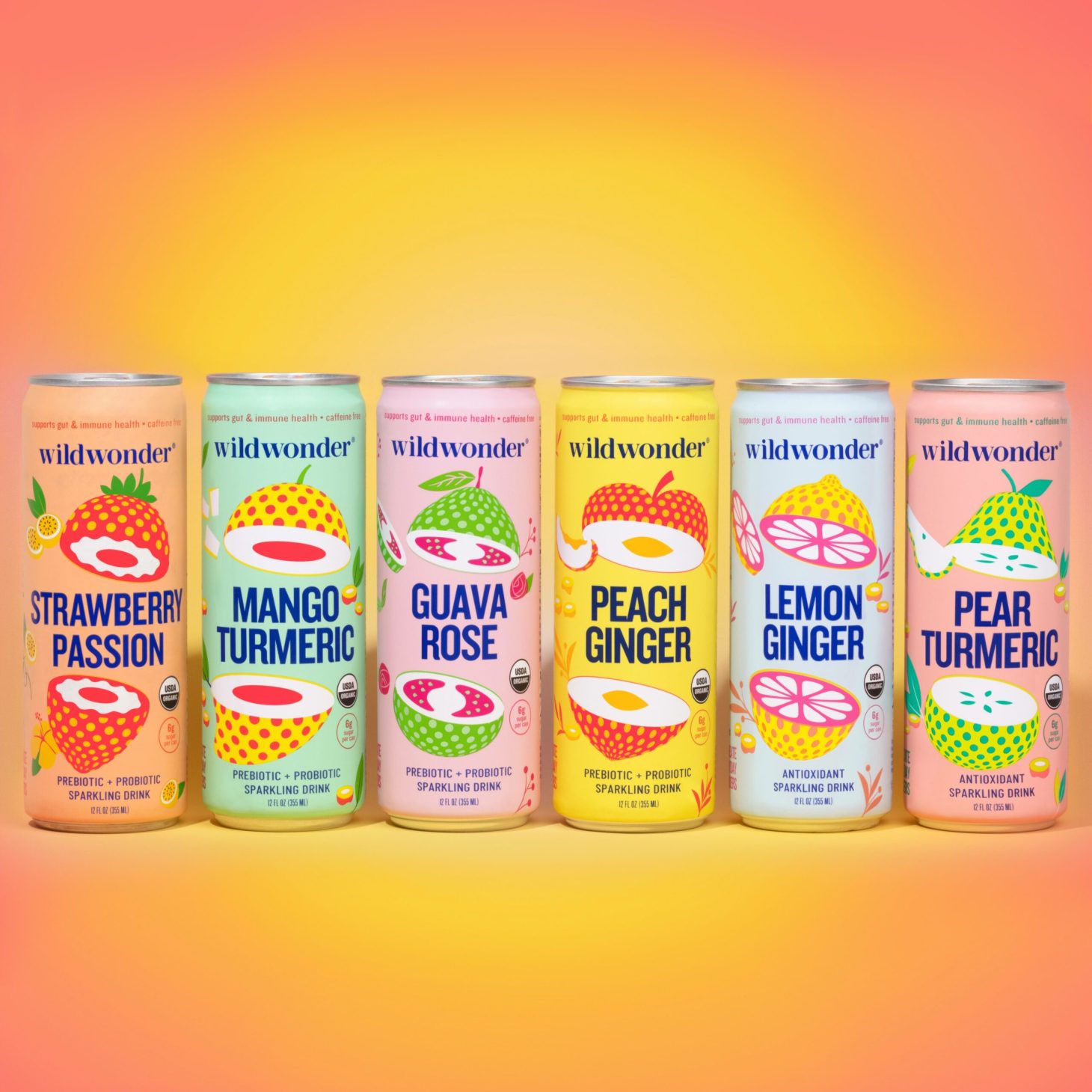
The prebiotic and probiotic sparkling drink company Wildwonder was inspired by the healing tonics that founder Rosa Li’s Chinese grandmother would make for her when growing up. According to Li, these herbal-infused beverages would lift her spirits, calm her stomach, and keep her healthy. Later in life, while working a stressful finance job, Li experienced several gastrointestinal issues. After an eye-opening microbiome test revealed the impact stress was playing on her gut health, Li set out to modernize her grandmother’s healing tonics and launched Wildwonder.
Li’s company creates refreshing beverages using key gut-boosting ingredients she refers to as “superherbs,” plus live probiotics, plant-based prebiotic fiber, and organic juices. Aside from providing a delicious drink to sip on throughout the day, Li’s also on a mission to make wellness accessible by combining ancient nutrition with modern flavors for everyone to try.
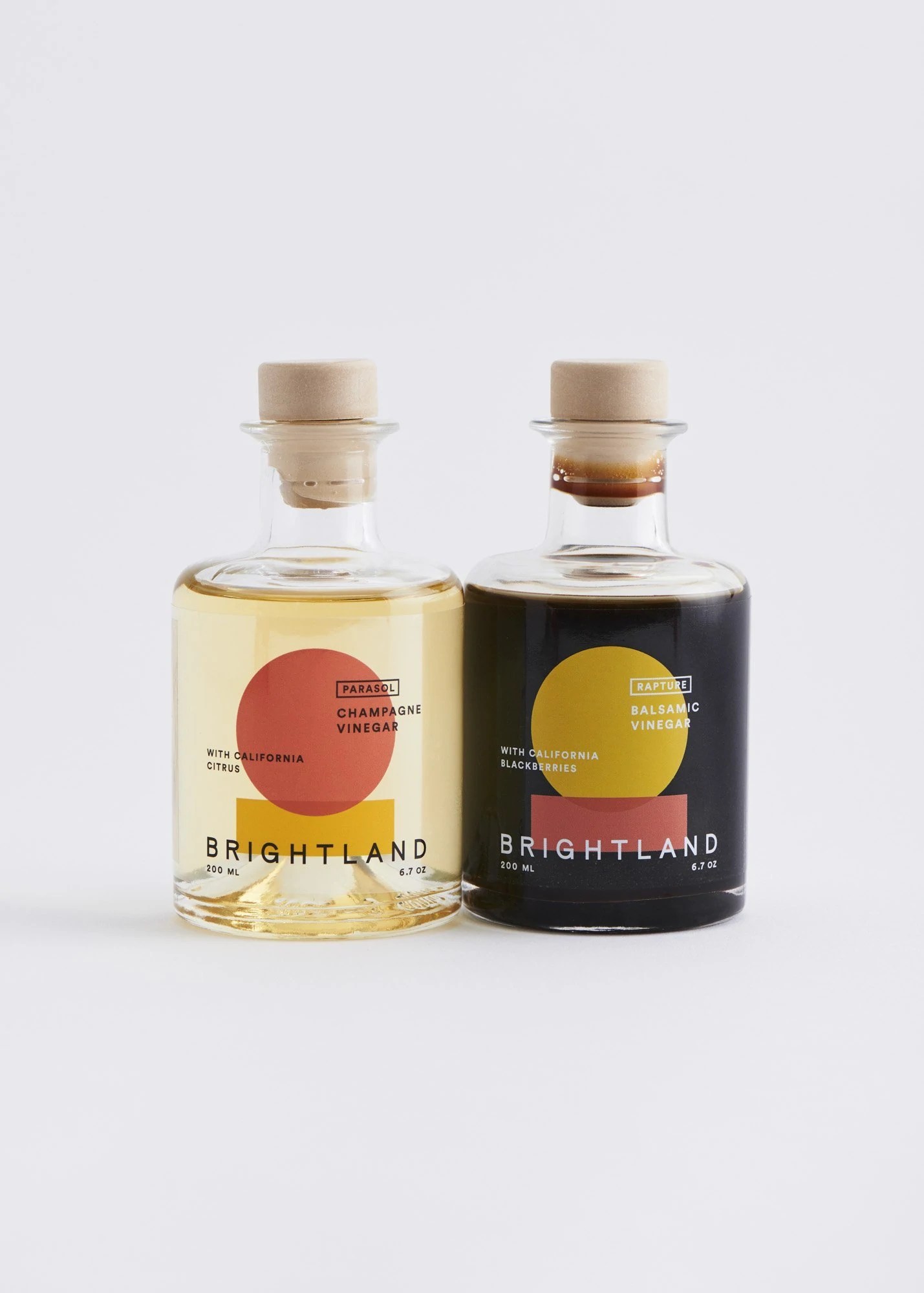
Aishwarya Iyer founded Brightland after realizing that many of the supermarket olive oils she was using were causing her feel sick. In search of better alternatives, Iyer launched her line of high-quality olive oils and double-fermented vinegars that are beautifully packaged and packed with gut-boosting benefits.
“Champagne and balsamic vinegar contain an active compound called acetic acid,” Iyer says. “Research has shown that this acid contains strains of probiotics that may help aid with digestion and promote good gut health.” With a keen eye for quality, she uses ingredients like raw champagne vinegar—that is double fermented with California chardonnay grapes and juicy navel and Valencia oranges—to create her iconic blends.
“My ancestors were salt farmers in South India, and knowing that, I had such a deep connection with food and the land [that] played an instrumental role in my journey to build Brightland in the first place. I firmly believe that you have to know where you come from in order to know where you’re going,” Iyer says.
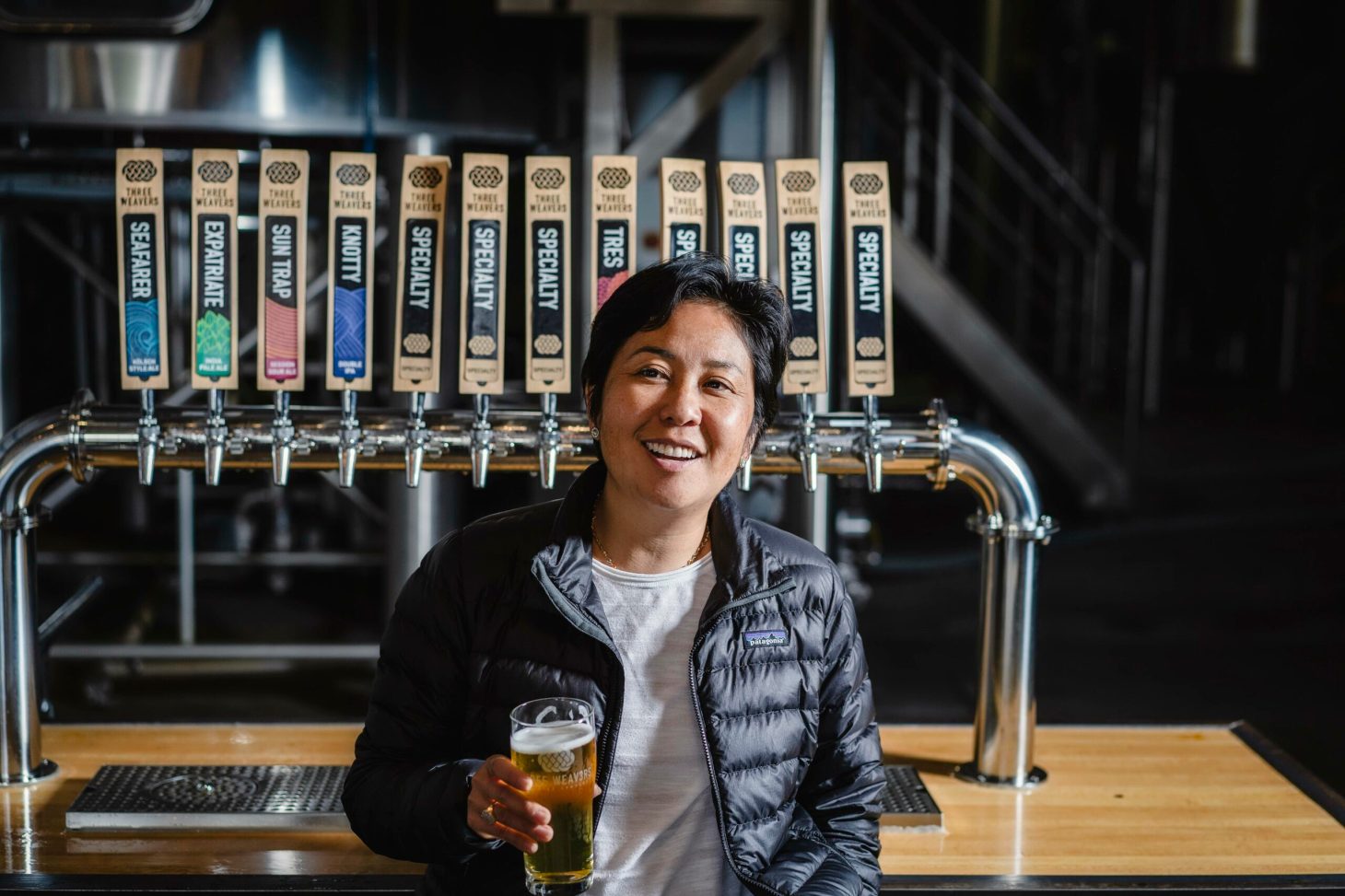
Aside from serving up good times, Three Weavers Brewing Company is an AAPI-owned and operated brewery located in Inglewood, California (with a new location on its way in Hollywood Park) that brews high-quality fermented beer.
Lynne Weaver, the Japanese-American owner of Three Weavers Brewing Company, launched her business after receiving tons of positive feedback for her home-brewed small batches. One of the most important missions in Weaver’s business plan was to create a strong motto to run her business. “Our ethos is based on family and community,” she says. “In the Japanese community, family and community is everything.” Down to the last detail, Weaver infuses her family pride into everything about Three Weavers, from the logo inspired by a traditional Japanese wrapping knot (mizuhiki) to the name, which is a nod to her three loving children.
Using the flavors from her heritage that she loves most, Weaver often experiments with adding Japanese ingredients to her original brewing recipes. “When I was homebrewing, I would throw in some shiitake mushrooms and some kombu into every single batch, which added an element of salt and that rounded out the umami flavor,” she says. Today, you can find some of her specialty beers that include items like The Messenger, a yuzu-infused pale ale, and Juicy Expat, a hazy IPA.
Oh hi! You look like someone who loves free workouts, discounts for cutting-edge wellness brands, and exclusive Well+Good content. Sign up for Well+, our online community of wellness insiders, and unlock your rewards instantly.
Loading More Posts...